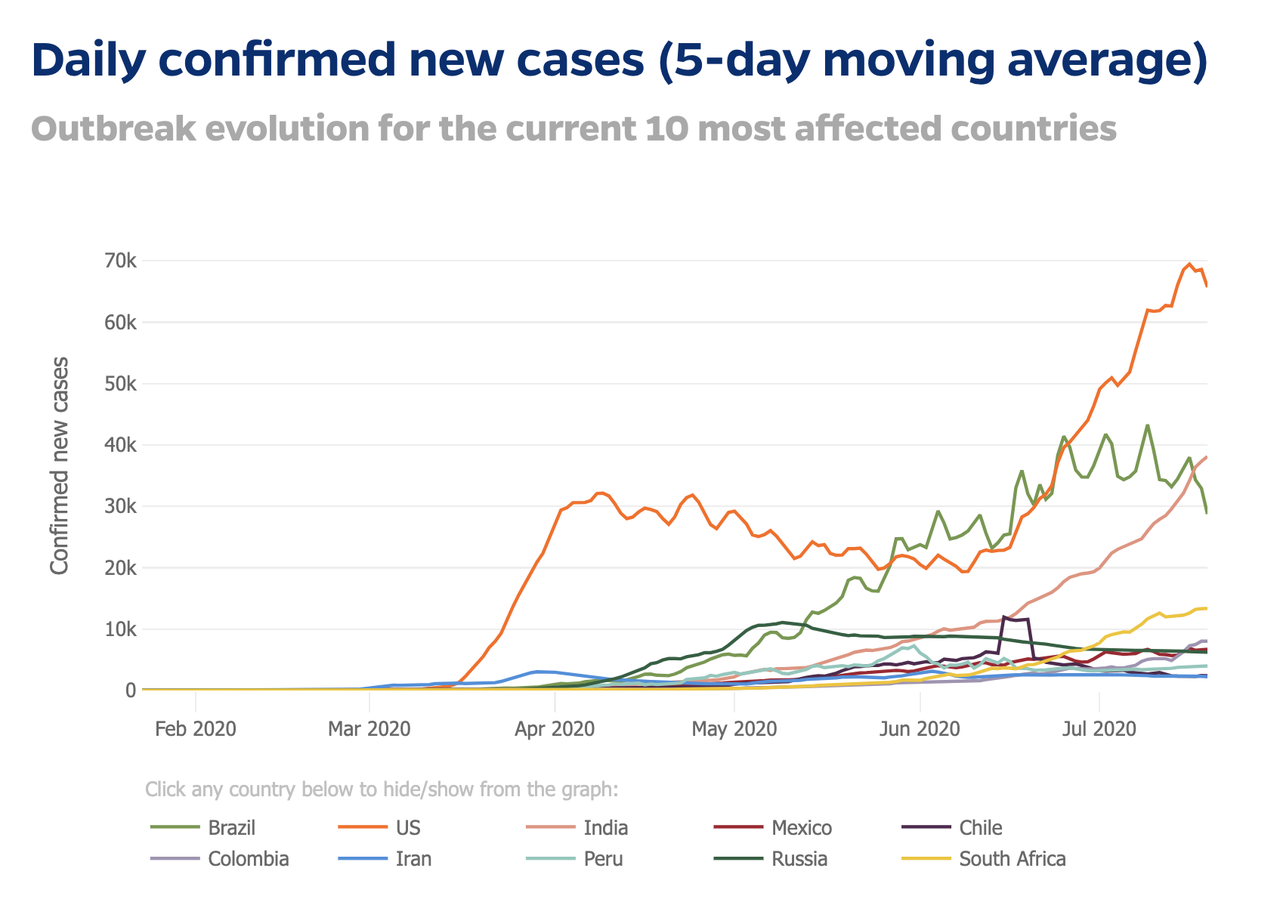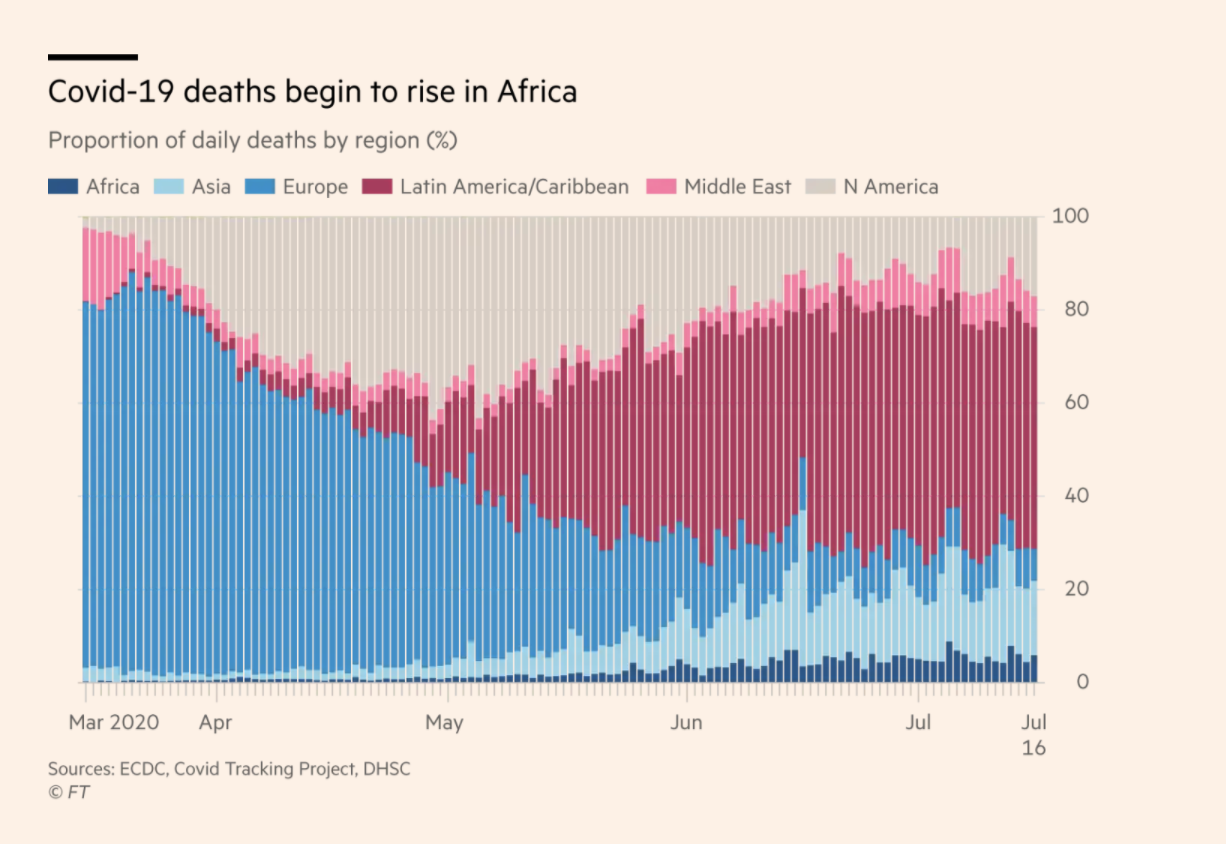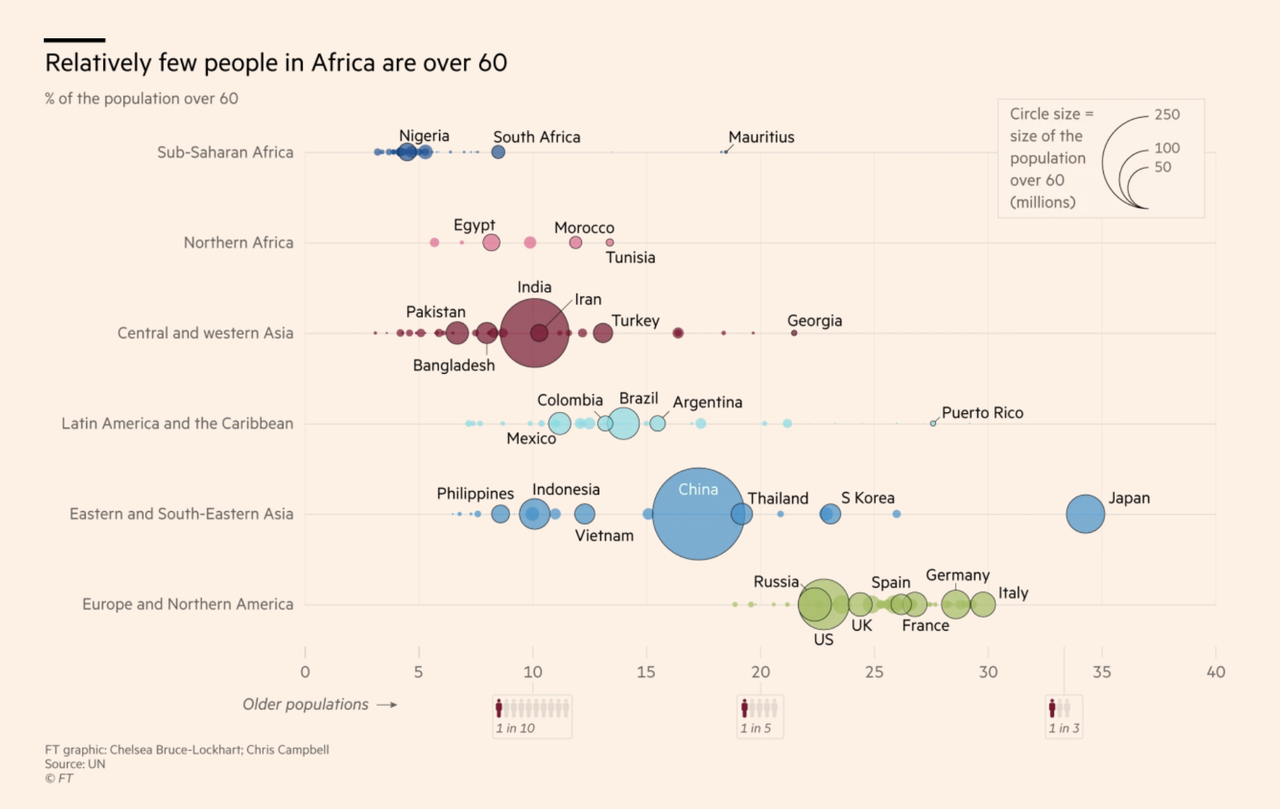Africa Has A Huge Advantage Over The US When It Comes To Fighting Coronavirus
Tyler Durden
Wed, 07/22/2020 – 02:45
As SARS-CoV-2 sweeps across India, Latin America and – of course – the US, epidemiologists are looking toward Africa, which has seen cases surge higher in recent weeks, due to outbreaks in South Africa, Egypt and a few other countries that comprise the majority of the continent’s confirmed cases.
According to the WHO, 47 of Africa’s 54 member states are affected, with 701,807 total cases…
…and 14,946 deaths. South Africa, the worst-hit country, is now reporting more than 10k new cases a day, surpassing 300k cases late last week.
We mentioned earlier that more than half of the cases confirmed on the continent can be traced to five countries: South Africa, Egypt, Algeria, Nigeria and Ghana. Although higher testing capacity is a factor, those countries also have more international ties than other relatively more isolated countries on the continent.
But as Africa’s daily totals move higher, the question of whether the continent is on the verge of a major outbreak is certainly worth considering. In a recent piece, the FT lays out the risks, as well as evidence to suggest that the worst might already be over.
Despite having far fewer public health resources, when facing down the coronavirus, Africa has one huge advantage over the US: the age of its population.
This fact alone makes the average African up to 6x more likely to survive infection by the coronavirus than the average American. In Africa, the median age is 19.4, while in the US it’s 38.
All the ventilators in the world couldn’t compensate for the tremendous age difference. This is just one more reason to wonder: Is it possible the level of ‘silent’ community spread is even larger than authorities understand?
Sema Sgaier, executive director of Surgo Foundation, a non-profit organisation, agrees that the pandemic has much further to run in Africa. Her foundation has compiled an index from open source data of regions most vulnerable to the social, economic and health impacts of Covid-19. Among those highlighted are Cameroon, the Democratic Republic of Congo, Madagascar, Malawi, Ethiopia and Uganda — all countries where the pandemic is yet to really take hold. There remains some cause for cautious optimism, Ms Sgaier says. Even if the virus ends up spreading as widely in Africa as in Europe and the Americas, it is likely to kill fewer people, she says, because of the continent’s more youthful population. Africa has a median age of 19.4 years against 38 in the US and 43 in Europe. Based on age and gender distribution, the Surgo Foundation estimates Africa’s infection fatality rate — the proportion of deaths among those infected — at 0.1 to 0.15 per cent. Adjusting for the poor quality of health services with a lack of oxygen and ventilators as well as for co-morbidities, such as HIV/Aids, it puts the infection fatality rate at an average 0.55 per cent, with the best countries in Africa at 0.22 and the worst at 0.76 per cent. That compares with 1.3 per cent in the US, meaning that an African infected with Covid-19 is between twice and six times more likely to survive than an American.
An FT illustration contrasts the average age of Africa’s population not only with the west, but with Asia as well.
Several studies have suggested that Africans, due to their young age, may see up to 2/3rds of cases as asymptomatic.
There is also tentative evidence emerging that African countries may have a high prevalence of asymptomatic cases thanks to its young population. An antibody study conducted by the Mozambican government in the northern city of Nampula with a population of 750,000 found that some two-thirds of people infected had suffered only very mild symptoms or no symptoms at all. In addition, the study found that 5 per cent of people in the community and 10 per cent of market vendors had been infected with coronavirus. Yet only four Covid-19 deaths have been recorded in Nampula province out of nine in the country as a whole. Even Mr Nkengasong at the Africa CDC, who has strongly cautioned against complacency, acknowledges that the continent’s young population means the death rate is likely to be lower. “We see these young people running around with Covid, just living their lives normally,” he says. “But we need to back this up with appropriate studies.”
But even if the lower-end estimates prove correct, if 60% of the continent’s population is infected, more than 4 million could die. Even half that number would be a catastrophe. Complicating things is Africa’s endemic poverty, which often means lockdowns are an impossibility, since people would effectively be doomed to starve.
![]()
Zero Hedge’s mission is to widen the scope of financial, economic and political information available to the professional investing public, to skeptically examine and, where necessary, attack the flaccid institution that financial journalism has become, to liberate oppressed knowledge, to provide analysis uninhibited by political constraint and to facilitate information’s unending quest for freedom. Visit https://www.zerohedge.com


